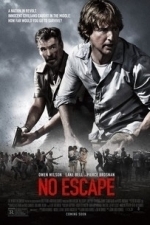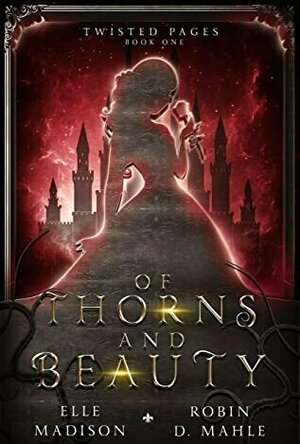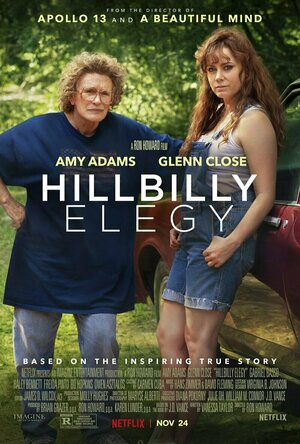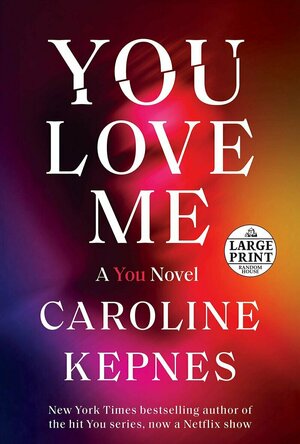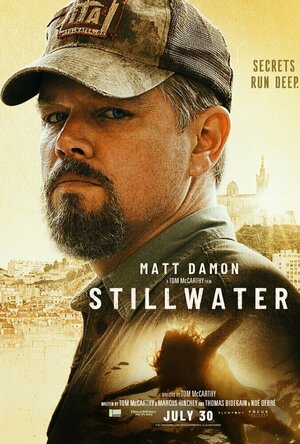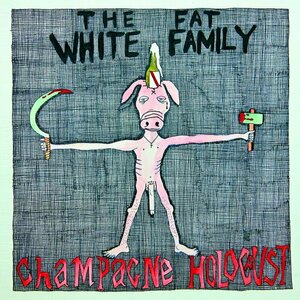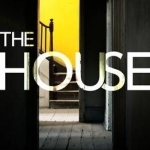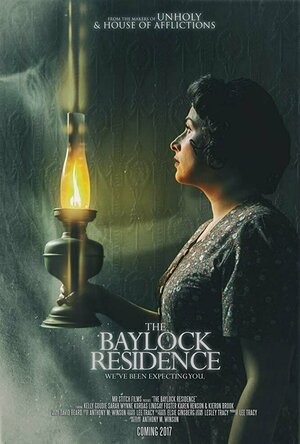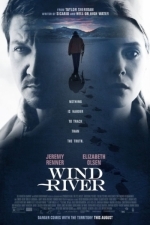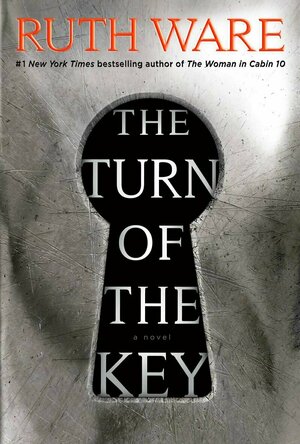Search
Search results
Gareth von Kallenbach (980 KP) rated No Escape (2015) in Movies
Aug 6, 2019
Full disclosure…I am not a fan of Owen Wilson. In fact, I have down right loathed him since I first saw him in Armageddon. In my opinion, he always plays an annoying, somewhat exaggerated and not very funny character. To make things worse, No Escape is a non-comedy, non-quirky, straight man Owen Wilson film. Seems like a terrible idea. Still, the trailer intrigued me because I wanted to see if Wilson had any range to be a “normal action” character for once or would he continue to live up to my low expectations of him.
Surprisingly, I enjoyed him in this performance greatly. Wilson plays a father who uproots his wife Annie (Lake Bell) and their two little girls and moves them to Southeast Asia to work on a project to bring clean drinking water to the country and provide a better life for his family. However shortly after arrival, the family finds themselves in the middle of a violent political uprising they do not understand nor have any idea why it is happening and must somehow find sanctuary and escape this foreign city where Americans are being executed on sight. The film is intense. As soon as the coup begins, we are taken on a ride of constant tension and emotion, broken up with quiet moments where Wilson uses “dad humor” to comfort his family. Wilson shines in these moments because his “lame Dad humor” is not only believable, but his demeanor throughout the film is realistic and loving. His chemistry with his cast mates is stellar as the family all deliver solid performances and you can believe they are an actual family.
As they are moving through the city they come across a familiar face in Pierce Brosnan who plays some kind of mercenary ex-agent type. Brosnan’s screen time is short but he steals every scene he is in. He also gives an explanation, though simple, of what is going on and how the family can find safety. Critics of this film may fault it for glossing over a real world issue of western colonialism and no attempt to humanize the plight of the locals, however for me at least, this film isn’t trying to tell a giant story, but rather a far simpler one which is about family. Additionally, the trailers for this film present it as more of an action film, which it is not.
In the end we are left with a frightening atmosphere where we constantly might ask ourselves what we would do in that situation. The strength of this film is the family dynamic and the strong performances that give them life. Though the film mostly ignores a real world issue, it delivers a thrilling fast paced ride from almost start to finish.
Surprisingly, I enjoyed him in this performance greatly. Wilson plays a father who uproots his wife Annie (Lake Bell) and their two little girls and moves them to Southeast Asia to work on a project to bring clean drinking water to the country and provide a better life for his family. However shortly after arrival, the family finds themselves in the middle of a violent political uprising they do not understand nor have any idea why it is happening and must somehow find sanctuary and escape this foreign city where Americans are being executed on sight. The film is intense. As soon as the coup begins, we are taken on a ride of constant tension and emotion, broken up with quiet moments where Wilson uses “dad humor” to comfort his family. Wilson shines in these moments because his “lame Dad humor” is not only believable, but his demeanor throughout the film is realistic and loving. His chemistry with his cast mates is stellar as the family all deliver solid performances and you can believe they are an actual family.
As they are moving through the city they come across a familiar face in Pierce Brosnan who plays some kind of mercenary ex-agent type. Brosnan’s screen time is short but he steals every scene he is in. He also gives an explanation, though simple, of what is going on and how the family can find safety. Critics of this film may fault it for glossing over a real world issue of western colonialism and no attempt to humanize the plight of the locals, however for me at least, this film isn’t trying to tell a giant story, but rather a far simpler one which is about family. Additionally, the trailers for this film present it as more of an action film, which it is not.
In the end we are left with a frightening atmosphere where we constantly might ask ourselves what we would do in that situation. The strength of this film is the family dynamic and the strong performances that give them life. Though the film mostly ignores a real world issue, it delivers a thrilling fast paced ride from almost start to finish.
Lottie disney bookworm (1056 KP) rated Of Thorns and Beauty in Books
Dec 29, 2020
Never has a retelling been so close but so unimaginabley far away from the original fairytale. Of Thorns and Beauty is a New Adult masterpiece which will reel you in from its first pages and not let you go until its cruel cliffhanger.
A quick note that this is definitely a New Adult novel. Although not written about in detail this take includes the subjects of abuse, murder and rape as well as a bucket load of sexual tension.
This retelling of Beauty and the Beast is written solely from the perspective of our protagonist-the beauty Zaina. Forced into an arranged marriage with the renowned beast King Einar and denied any companions to accompany her, Zaina enters the "Beast's" castle entirely on her guard and unaware as to what sort of a life lays before her.
It quickly becomes apparent that Zaina's beauty has only ever caused pain and hardship for her in the past. As a result of this, she is a far cry from the bookish village girl seeking an adventure in the great wide somewhere. Zaina is fiery, sarcastic, dangerous and her prickly, defensive demeanour makes her few friends in her new home.
The use of a first person perspective with a protagonist such as Zaina really brings this novel to life. Zaina is such a damaged character and the reader is drip fed memories so partially and so slowly that we still don't know the extent of her suffering once the book has ended.
The style of writing also allows us to share Zaina's frustration at attempting to read her husband Einar's emotions: quite ironic for someone so closed off herself. The reader does not always feel empathy though: Zaina's defences are so high that she shuns any attempt at friendship; sometimes you just want to shake her!
Elements of the original beauty and the beast tale remain: there is indeed a curse, a rose and a forbidden west wing. However, these are so cleverly twisted that the reader will finish this book with an entirely different concept of who the Beast really is.
The fact that the authors themselves apologise for the cliffhanger, explaining that the characters and storyline just required more pages and more time, shows the sheer commitment to world building and character development.
Madison and Mahle introduce us to a whole new world of scenery and creatures; they pull us into the painful past of both main characters; place slimy villains in the shadows and raise our hopes of romance before throwing them off a cliff. This book is impossible to put down and I cannot wait to see what happens next.
Thank you to Booksirens for the opportunity to read a free copy of this book in exchange for an honest review.
A quick note that this is definitely a New Adult novel. Although not written about in detail this take includes the subjects of abuse, murder and rape as well as a bucket load of sexual tension.
This retelling of Beauty and the Beast is written solely from the perspective of our protagonist-the beauty Zaina. Forced into an arranged marriage with the renowned beast King Einar and denied any companions to accompany her, Zaina enters the "Beast's" castle entirely on her guard and unaware as to what sort of a life lays before her.
It quickly becomes apparent that Zaina's beauty has only ever caused pain and hardship for her in the past. As a result of this, she is a far cry from the bookish village girl seeking an adventure in the great wide somewhere. Zaina is fiery, sarcastic, dangerous and her prickly, defensive demeanour makes her few friends in her new home.
The use of a first person perspective with a protagonist such as Zaina really brings this novel to life. Zaina is such a damaged character and the reader is drip fed memories so partially and so slowly that we still don't know the extent of her suffering once the book has ended.
The style of writing also allows us to share Zaina's frustration at attempting to read her husband Einar's emotions: quite ironic for someone so closed off herself. The reader does not always feel empathy though: Zaina's defences are so high that she shuns any attempt at friendship; sometimes you just want to shake her!
Elements of the original beauty and the beast tale remain: there is indeed a curse, a rose and a forbidden west wing. However, these are so cleverly twisted that the reader will finish this book with an entirely different concept of who the Beast really is.
The fact that the authors themselves apologise for the cliffhanger, explaining that the characters and storyline just required more pages and more time, shows the sheer commitment to world building and character development.
Madison and Mahle introduce us to a whole new world of scenery and creatures; they pull us into the painful past of both main characters; place slimy villains in the shadows and raise our hopes of romance before throwing them off a cliff. This book is impossible to put down and I cannot wait to see what happens next.
Thank you to Booksirens for the opportunity to read a free copy of this book in exchange for an honest review.
Bob Mann (459 KP) rated Hillbilly Elegy (2020) in Movies
Apr 22, 2021
General Shoutiness and a glowering Glenn Close
I missed Ron Howard's "Hillbilly Elegy" when it came out at the end of last year, but principally wanted to catch up on it to see Glenn Close's Oscar nominated performance before Sunday's Oscars.
Positives:
- When this film started, I suspected that the Glenn Close nomination might be another 'Judi Dench in Shakespeare in Love' - - where her acceptance speech is longer than the time spent on screen! But no. Because of the flashback format deployed in the film, she actually gets a good amount of air time. And it's a really solid and impressive performance.
- The supporting cast is also good. Amy Adams is given a lot to do with a challenging role, and (just about) pulls it off. And young Owen Asztalos as the younger J. D. particularly impressed me.
Negatives:
- Although it's based on J. D. Vance's true life story, I really struggled to get very invested in the story. The choppy nature of the narrative - hopping repeatedly between 'the present' and multiple flashback timelines - really doesn't help with this.
- The whole J. D. / Usha romance element almost felt like it belonged in a different film. In fact, I found it frustrating that I found the elements with J. D.'s struggles at college, with the emerging love and guidance of Usha, as a more compelling narrative than the druggie mother lead story. Perhaps the movie was just trying to be too ambitious?
- Apart from one 'personal decision' scene in a motel bedroom, there's not much of an "up-side" to the story for the viewer to take away. It's not a movie that I found a positive experience.
Viewer Advisory;
If you've had any history of life in a dysfunctional family, there is a lot of shouting, slapping and general tension in this movie which you might find disturbing.
Summary Thoughts:
So, I came to this to see the performance of Glenn Close, and it's very good. I would personally be surprised if she takes the Oscar for this. However, having been nominated eight times before and never won, the 'sympathy vote' may play here.
But one of my bellweathers for a movie is to think whether I'll remember it in six months time. I'm afraid this one is unlikely to pass the test. If you say "Hillbilly Elegy" to me in October, I'll probably recall a whole lot of shouty people and Glenn Close glowering at me from the screen. That's not a wholly great recommendation for a movie. Sorry Mr Howard, but this one's a 'miss' for me.
(For the full graphical review, please see the One Mann's Movies review here - https://bob-the-movie-man.com/2021/04/21/hillbilly-elegy-review/ ).
Positives:
- When this film started, I suspected that the Glenn Close nomination might be another 'Judi Dench in Shakespeare in Love' - - where her acceptance speech is longer than the time spent on screen! But no. Because of the flashback format deployed in the film, she actually gets a good amount of air time. And it's a really solid and impressive performance.
- The supporting cast is also good. Amy Adams is given a lot to do with a challenging role, and (just about) pulls it off. And young Owen Asztalos as the younger J. D. particularly impressed me.
Negatives:
- Although it's based on J. D. Vance's true life story, I really struggled to get very invested in the story. The choppy nature of the narrative - hopping repeatedly between 'the present' and multiple flashback timelines - really doesn't help with this.
- The whole J. D. / Usha romance element almost felt like it belonged in a different film. In fact, I found it frustrating that I found the elements with J. D.'s struggles at college, with the emerging love and guidance of Usha, as a more compelling narrative than the druggie mother lead story. Perhaps the movie was just trying to be too ambitious?
- Apart from one 'personal decision' scene in a motel bedroom, there's not much of an "up-side" to the story for the viewer to take away. It's not a movie that I found a positive experience.
Viewer Advisory;
If you've had any history of life in a dysfunctional family, there is a lot of shouting, slapping and general tension in this movie which you might find disturbing.
Summary Thoughts:
So, I came to this to see the performance of Glenn Close, and it's very good. I would personally be surprised if she takes the Oscar for this. However, having been nominated eight times before and never won, the 'sympathy vote' may play here.
But one of my bellweathers for a movie is to think whether I'll remember it in six months time. I'm afraid this one is unlikely to pass the test. If you say "Hillbilly Elegy" to me in October, I'll probably recall a whole lot of shouty people and Glenn Close glowering at me from the screen. That's not a wholly great recommendation for a movie. Sorry Mr Howard, but this one's a 'miss' for me.
(For the full graphical review, please see the One Mann's Movies review here - https://bob-the-movie-man.com/2021/04/21/hillbilly-elegy-review/ ).
Kristy H (1252 KP) rated You Love Me in Books
Apr 15, 2021
A creepy but long-winded entry in the YOU series
Joe Goldberg has resolved to be a good guy. No more obsessions, no more killing to get what he wants. He's moving to the Pacific Northwest, he's going to work in a library (he has some experience with books, after all), and he's reformed. It's at the library where he meets her. Mary Kay DiMarco. A librarian. Beautiful, older. She's also a mother. She's busy and distracted. But Joe knows true love will prevail, because he's doing things the right way. With his undying love and friendship, Mary Kay will have no choice but to fall for him.
"And of course you couldn't help it. After all, you love me."
I was incredibly excited to hear there would be a third "Joe" book, because I can still remember reading the first, YOU. I was alone on a mini-vacation and spent the entire thing creeped out, feeling watched, thanks to how good Kepnes is at writing Joe and his obsessiveness. The good thing about YOU LOVE ME is that she still captures Joe's voice perfectly. He's just... Joe. Obsessed. Weird. Witty. Over the top.
(Stop reading if you don't want to know what happened in the first two books.)
In YOU LOVE ME, Joe is fleeing Love--not the concept, but the actual person, from book two. After his encounters with her, he's ready to be on the straight and narrow. He realizes he has no more chances, no more "get out of jail free" cards. Starting over in the Pacific Northwest is it.
So, while Joe is still his usual creepy self, he's slightly diminished. We don't get full-on stalk/kill Joe, and it's a little disappointing. I'm not going to lie: I want Joe to triumph over others. I like when Joe wins. And, sadly, I found myself not wanting to go back and pick this book up after I started it. I was so bummed! It was long, meandering, and all the twists seemed either odd and too convenient or just really strange. It dragged on, lacking the ominous tension of YOU.
I still rooted for Joe, of course. That's the talent Kepnes brings, making us cheer on the bad guy. But there was less "Joe versus evil" than "Joe versus annoying" in this read. Of course we wanted Joe to win--his foes were downright irritating.
Overall, this book still captures Joe's voice really well, but the actual story seems lacking. It's long and couldn't keep my full interest. Now, if there's a book four, will I still read it? Sure. 2.5 stars, rounded to 3 here, because there's always something about Joe.
"And of course you couldn't help it. After all, you love me."
I was incredibly excited to hear there would be a third "Joe" book, because I can still remember reading the first, YOU. I was alone on a mini-vacation and spent the entire thing creeped out, feeling watched, thanks to how good Kepnes is at writing Joe and his obsessiveness. The good thing about YOU LOVE ME is that she still captures Joe's voice perfectly. He's just... Joe. Obsessed. Weird. Witty. Over the top.
(Stop reading if you don't want to know what happened in the first two books.)
In YOU LOVE ME, Joe is fleeing Love--not the concept, but the actual person, from book two. After his encounters with her, he's ready to be on the straight and narrow. He realizes he has no more chances, no more "get out of jail free" cards. Starting over in the Pacific Northwest is it.
So, while Joe is still his usual creepy self, he's slightly diminished. We don't get full-on stalk/kill Joe, and it's a little disappointing. I'm not going to lie: I want Joe to triumph over others. I like when Joe wins. And, sadly, I found myself not wanting to go back and pick this book up after I started it. I was so bummed! It was long, meandering, and all the twists seemed either odd and too convenient or just really strange. It dragged on, lacking the ominous tension of YOU.
I still rooted for Joe, of course. That's the talent Kepnes brings, making us cheer on the bad guy. But there was less "Joe versus evil" than "Joe versus annoying" in this read. Of course we wanted Joe to win--his foes were downright irritating.
Overall, this book still captures Joe's voice really well, but the actual story seems lacking. It's long and couldn't keep my full interest. Now, if there's a book four, will I still read it? Sure. 2.5 stars, rounded to 3 here, because there's always something about Joe.
Bob Mann (459 KP) rated Stillwater (2021) in Movies
Aug 10, 2021
Matt Damon - solid central performance (1 more)
Intelligent script
Life is Brutal
Positives:
- Matt Damon needs to be the rock at the centre of the movie to hold it all together. The movie lives or dies on believing that he could be a God-fearing oil roughneck and all-round fuck-up. And he does a really good job here in doing that.
- The script excels in a number of ways:
-- it's great in building, and in some cases destroying, the relationships between the characters. In particular, the portrayal of the pseudo-family that develops with Bill, Virginie and Maya is very sweet. A lounge scene, without dialogue, with each looking in turn at each other is glorious;
-- the story isn't handed to you on a plate, but your understanding of what's going on evolves as you watch it;
-- a twist in the story (no spoilers) is unexpected and savage, and requires real concentration to understand!
Negatives:
- Although I appreciated the leisurely introduction of the characters and their relationships, the film was a bit flabby in the telling. At nearly 140 minutes, I think its about 20 minutes too long.
- For balance and a different view, the wife was very upset and cross about the treatment of Maya at one point in the movie. (There are clear repercussions though). And she wasn't a fan of Abigail "Little Miss Sunshine" Breslin's performance (although I personally though it was "OK").
Summary Thoughts on "Stillwater": It's billed as a "Thriller" and although it does have it's moments of tension, it's much more a drama reflecting a flawed father trying to make amends for his failures in the past. As such it might plod a bit for those looking for more of an action-oriented thriller. But I found it thoroughly absorbing overall, and a marked improvement on "Spotlight" by the same director (which seemed to garner praise and Oscar nods from everyone other than me!).
A curiosity for me is the rating for this one.... a "15" certificate in the UK for "Strong Language". I'd assumed that the "15" rating was due to the racist dialogue, present in one particular brief scene. But that seems to be a secondary concern to the BBFC (see their web site). I'm sure they have word-tally counts. But, to me, there wasn't enough bad language in this one to merit the rating: I personally think it should have been a "12A".
But overall this is a solid piece of movie storytelling, whether controversial or otherwise. And Recommended.
(For the full graphical review please check out One Mann's Movies on the web, Facebook or Tiktok. Thanks).
- Matt Damon needs to be the rock at the centre of the movie to hold it all together. The movie lives or dies on believing that he could be a God-fearing oil roughneck and all-round fuck-up. And he does a really good job here in doing that.
- The script excels in a number of ways:
-- it's great in building, and in some cases destroying, the relationships between the characters. In particular, the portrayal of the pseudo-family that develops with Bill, Virginie and Maya is very sweet. A lounge scene, without dialogue, with each looking in turn at each other is glorious;
-- the story isn't handed to you on a plate, but your understanding of what's going on evolves as you watch it;
-- a twist in the story (no spoilers) is unexpected and savage, and requires real concentration to understand!
Negatives:
- Although I appreciated the leisurely introduction of the characters and their relationships, the film was a bit flabby in the telling. At nearly 140 minutes, I think its about 20 minutes too long.
- For balance and a different view, the wife was very upset and cross about the treatment of Maya at one point in the movie. (There are clear repercussions though). And she wasn't a fan of Abigail "Little Miss Sunshine" Breslin's performance (although I personally though it was "OK").
Summary Thoughts on "Stillwater": It's billed as a "Thriller" and although it does have it's moments of tension, it's much more a drama reflecting a flawed father trying to make amends for his failures in the past. As such it might plod a bit for those looking for more of an action-oriented thriller. But I found it thoroughly absorbing overall, and a marked improvement on "Spotlight" by the same director (which seemed to garner praise and Oscar nods from everyone other than me!).
A curiosity for me is the rating for this one.... a "15" certificate in the UK for "Strong Language". I'd assumed that the "15" rating was due to the racist dialogue, present in one particular brief scene. But that seems to be a secondary concern to the BBFC (see their web site). I'm sure they have word-tally counts. But, to me, there wasn't enough bad language in this one to merit the rating: I personally think it should have been a "12A".
But overall this is a solid piece of movie storytelling, whether controversial or otherwise. And Recommended.
(For the full graphical review please check out One Mann's Movies on the web, Facebook or Tiktok. Thanks).
Juliette Jackson recommended track Auto Neutron by The Fat White Family in Champagne Holocaust by The Fat White Family in Music (curated)
BookInspector (124 KP) rated The House: The Terrifying Thriller That's Keeping Readers Up All Night in Books
Sep 24, 2020
More reviews can be found at https://bbookinspector.wordpress.com
When I read the description of this book, it sounded so exciting and riveting, and I was prepared for this mystery and crime solving, but when I read this book, everything what was written in the blurb happened waaaaay slower and more confusing than I expected.
The main characters in this book are Syd and Jack, and this whole novel is told from their perspectives. Even though this novel is told from two people’s perspectives, they are describing lives of many other characters as well. All the characters chosen for this book are really diverse, complex, and incredibly disturbed, that’s what made this book so interesting, and gave a wide variety of characters to choose from. In this novel, I could not pick my favourite one, all of the characters have their charm and charisma. Personally, I would’ve loved, if author would’ve add Syd’s father’s thoughts in this book, I would’ve loved to pick his brains and understand why he did, what he did.
The narrative of this novel starts pretty slow, Jack’s main concentration was on the house, and he was the one who finds those ghostly things about the house. Meanwhile, Syd was telling the story of her life, comparing it with the teenage girl Elsie, whom she is trying to save from abusive father. Even though both characters are telling quite different stories, it all entangles later in the book, making perfect sense. This book is pretty intense psychological thriller, because there are a lot of mind games involved, and the detailed child abuse scenes, makes this book pretty disturbing. So, if you are sensitive to this topic, you might want to skip this one, as it might make you really upset and angry. I really loved topics which Simon Lelic discussed in this book, such as: child physical and psychological abuse; drug addiction; complicated but deep love; difficult child – parent relationships.
The writing style of this novel is not very easy to understand, there are a lot of jumps, but eventually it makes perfect sense and it is pleasant to read, with decent length chapters, which didn’t leave me bored. I am thankful, that author explained everything at the end of the book and didn’t leave a cliffhanger, that would’ve made me furious. So, to conclude, it is quite confusing book, but do not give up on it, it will make sense as you read it, and I hope you will not be disappointed. It is really intense psychological thriller, filled with plenty of twists and turns, which creates tension and incredibly well thought through mind games, and I do strongly recommend reading it.
Was given this book by publisher and NetGalley for honest review.
When I read the description of this book, it sounded so exciting and riveting, and I was prepared for this mystery and crime solving, but when I read this book, everything what was written in the blurb happened waaaaay slower and more confusing than I expected.
The main characters in this book are Syd and Jack, and this whole novel is told from their perspectives. Even though this novel is told from two people’s perspectives, they are describing lives of many other characters as well. All the characters chosen for this book are really diverse, complex, and incredibly disturbed, that’s what made this book so interesting, and gave a wide variety of characters to choose from. In this novel, I could not pick my favourite one, all of the characters have their charm and charisma. Personally, I would’ve loved, if author would’ve add Syd’s father’s thoughts in this book, I would’ve loved to pick his brains and understand why he did, what he did.
The narrative of this novel starts pretty slow, Jack’s main concentration was on the house, and he was the one who finds those ghostly things about the house. Meanwhile, Syd was telling the story of her life, comparing it with the teenage girl Elsie, whom she is trying to save from abusive father. Even though both characters are telling quite different stories, it all entangles later in the book, making perfect sense. This book is pretty intense psychological thriller, because there are a lot of mind games involved, and the detailed child abuse scenes, makes this book pretty disturbing. So, if you are sensitive to this topic, you might want to skip this one, as it might make you really upset and angry. I really loved topics which Simon Lelic discussed in this book, such as: child physical and psychological abuse; drug addiction; complicated but deep love; difficult child – parent relationships.
The writing style of this novel is not very easy to understand, there are a lot of jumps, but eventually it makes perfect sense and it is pleasant to read, with decent length chapters, which didn’t leave me bored. I am thankful, that author explained everything at the end of the book and didn’t leave a cliffhanger, that would’ve made me furious. So, to conclude, it is quite confusing book, but do not give up on it, it will make sense as you read it, and I hope you will not be disappointed. It is really intense psychological thriller, filled with plenty of twists and turns, which creates tension and incredibly well thought through mind games, and I do strongly recommend reading it.
Was given this book by publisher and NetGalley for honest review.
Darren (1599 KP) rated The Baylock Residence (2019) in Movies
Sep 26, 2019
Characters – Patricia Woodhouse left this house years ago, she is drawn back during the war after her sister’s death, she wants to start a new life here, because the war has taken nearly everything else from her, but the past she spent so long trying to forget has come back to haunt her, as she looks for the truth of her sister’s death. Annabel is the help around the house, she stays after Patricia requests for her to stay and help her with the transition, she does help fill in about the past, including what happened to Susanna. Susanna is the sister that has passed away, we are left to wonder what caused her death.
Performances – Kelly Goudie in the leading role isn’t the strongest leading lady, when it comes to the reaction or horror scenes, we don’t get anything bad, it’s the everyday moments which come off flatter than they should do. Sarah Wynne Kordas is the only other main cast member that does everything needed without getting the best scenes.
Story – The story here follows a woman that returns to her home after years away to deal with a family loss, only to learn that the house has a bigger secret that hasn’t been unlock just yet. This is story that plays into the idea that your past can hold answers no matter how hard you look to forget it, it does also play into the ideas that a family can have secrets which will only disturb. The pace of the story isn’t the most convincing, with large amounts of the film being stuff happening behind characters most notable Patricia, we also end up teasing an idea to what is happening, only it just gets forgotten which would have added extra dimension to an abuse victim. The war time theme doesn’t help because the same story could easily happen at any other era too.
Horror – The horror in this film comes from how Patricia is struggling with the visions that she is having, not being able to balance reality with supernatural.
Settings – The film is set within the one house, which doesn’t look time accurate from the outside, it does show how the family home can be reunited from tragedy.
Special Effects – The film does use effects sparely, when they are used they do add an element to horror in the film.
Scene of the Movie – The secret room.
That Moment That Annoyed Me – The non-horror moment conversations feel out of place.
Final Thoughts – This is a horror thriller that does have moments of strong tension, only it doesn’t keep this up for long enough to make us what to learn the truth.
Overall: Slow Burning Horror.
Performances – Kelly Goudie in the leading role isn’t the strongest leading lady, when it comes to the reaction or horror scenes, we don’t get anything bad, it’s the everyday moments which come off flatter than they should do. Sarah Wynne Kordas is the only other main cast member that does everything needed without getting the best scenes.
Story – The story here follows a woman that returns to her home after years away to deal with a family loss, only to learn that the house has a bigger secret that hasn’t been unlock just yet. This is story that plays into the idea that your past can hold answers no matter how hard you look to forget it, it does also play into the ideas that a family can have secrets which will only disturb. The pace of the story isn’t the most convincing, with large amounts of the film being stuff happening behind characters most notable Patricia, we also end up teasing an idea to what is happening, only it just gets forgotten which would have added extra dimension to an abuse victim. The war time theme doesn’t help because the same story could easily happen at any other era too.
Horror – The horror in this film comes from how Patricia is struggling with the visions that she is having, not being able to balance reality with supernatural.
Settings – The film is set within the one house, which doesn’t look time accurate from the outside, it does show how the family home can be reunited from tragedy.
Special Effects – The film does use effects sparely, when they are used they do add an element to horror in the film.
Scene of the Movie – The secret room.
That Moment That Annoyed Me – The non-horror moment conversations feel out of place.
Final Thoughts – This is a horror thriller that does have moments of strong tension, only it doesn’t keep this up for long enough to make us what to learn the truth.
Overall: Slow Burning Horror.
Gareth von Kallenbach (980 KP) rated Wind River (2017) in Movies
Jul 11, 2019
Between Sicario and Hell or High Water (both of which landed on my year-end best lists for 2015 and 2016 respectively), Taylor Sheridan has already proven to be an incredible talent at crafting slow-burning thrillers that also serve as in-depth character studies. His new film, third as a screenwriter and second as a director, may move at quite a faster pace than his previous two screenplays, but it is no less accomplished, either in plot or in character development. Though some may leave the theater feeling that they haven’t seen anything new, and they’d be right to as there isn’t anything particularly flashy or unique in the direction or cinematography, Wind River however finds its strength in its simplicity. It’s a simple story concerning the death of a young girl on a Wyoming reservation, of the tracker (Jeremy Renner) for whom the circumstance strikes too close to home, and of the presumably untested FBI agent (Elizabeth Olsen) forced to face the darker side of her chosen profession.
For Jeremy Renner, Wind River marks a career best. He displays restraint in a role that others would have played far too arrogantly and when he lets us in to share in his character’s painful past, the melodrama inherent in the dialogue is delivered with dignity and humility. Complimenting his performance beautifully is Gil Birmingham as Martin, the father of the murdered girl. Much like his work opposite Jeff Bridges in Hell or High Water, his scenes with Renner are the highlight of the film. Every line he delivers reverberates with truth and with the weight of losing of two children, one whose life is thrown away to drug use and one to an untimely, mysterious death. Veteran actor and longtime favorite of mine, Graham Greene is also on hand to give a competent turn as the local sheriff who in equal measures doles out tension-relieving humor as well as reminding us of the gravity of a bleak situation.
In amongst a predominately-male cast, Elizabeth Olsen shines. This film was an undoubtedly a tough task, as her character is given no soft options, and her performance gave me cause to reflect on a young Jodie Foster in The Silence of the Lambs. I don’t just draw this comparison because of the fact they both play young agents thrust into a situation beyond their level of experience, but because of the scenes in these films where they are called upon to confidently take command of a room full of men and to show great physicality in moments of unexpected violence. It’s another top mark in her filmography comparable to her breakout in Martha Marcy May Marlene and hopefully, in-between bouts of this bloated Marvel Cinematic Universe nonsense, we’ll continue to see her in roles of some substance.
For Jeremy Renner, Wind River marks a career best. He displays restraint in a role that others would have played far too arrogantly and when he lets us in to share in his character’s painful past, the melodrama inherent in the dialogue is delivered with dignity and humility. Complimenting his performance beautifully is Gil Birmingham as Martin, the father of the murdered girl. Much like his work opposite Jeff Bridges in Hell or High Water, his scenes with Renner are the highlight of the film. Every line he delivers reverberates with truth and with the weight of losing of two children, one whose life is thrown away to drug use and one to an untimely, mysterious death. Veteran actor and longtime favorite of mine, Graham Greene is also on hand to give a competent turn as the local sheriff who in equal measures doles out tension-relieving humor as well as reminding us of the gravity of a bleak situation.
In amongst a predominately-male cast, Elizabeth Olsen shines. This film was an undoubtedly a tough task, as her character is given no soft options, and her performance gave me cause to reflect on a young Jodie Foster in The Silence of the Lambs. I don’t just draw this comparison because of the fact they both play young agents thrust into a situation beyond their level of experience, but because of the scenes in these films where they are called upon to confidently take command of a room full of men and to show great physicality in moments of unexpected violence. It’s another top mark in her filmography comparable to her breakout in Martha Marcy May Marlene and hopefully, in-between bouts of this bloated Marvel Cinematic Universe nonsense, we’ll continue to see her in roles of some substance.
ClareR (6062 KP) rated The Turn of The Key in Books
Aug 18, 2019
I’ve read some pretty spooky books in my time, but none have had me on the edge of my seat in quite the same way as Turn of the Key by Ruth Ware did! There’s an underlying menace in this book - nothing explicit - and I think that makes it all the more frightening. I can’t even tell you the amount of times I told the lead character, a Nanny from London, to just pack up, leave the children with the housekeeper, and go home!
So, as I’ve already begun to say, Rowan is a Nanny who has been employed to look after the children of a wealthy husband and wife architecture team. They work away from home, and need someone to take care of their young children (plus a 14 year old who comes home from boarding school at the weekend). It all seems very rushed, and when Rowan turns up to take her post, Sandra (the mum) drops the bombshell that they will both be leaving for a week the next day. The children haven’t even had a chance to get to know Rowan with their mum there! Sandra leaves a huge folder with instructions for EVERYTHING regarding the children, and a very quick lesson on ‘Happy’, the house computer system (kind of like Alexa, but less chatty and far less easy to use!). I would’ve said something here, but Rowan seems to be desperate for the job. She seems to be a nice enough person, but she does make allusions to her temper, and does seem to lose it with the children quite a bit. But I’m not surprised - she is woken up every night, either by bumps and pacing sounds, or Happy seemingly having a huge glitch and playing loud music whilst turning on lights throughout the house in the early hours. Well, Maddie, the 8 year old, did warn her about the displeasure of the ghosts at her interview.....
I loved how creepy this was - I didn’t know what was real and what Rowan was imagining because of sleep deprivation, but it made all of the days seem to merge together. You could feel how tired and scared she must have been.
The last fifth of the book was something else though. I can’t think of many books where I’ve actually told a character out loud “No!” (It made my dogs stop and look!). The last few (yes, FEW!) revelations and twists kept the tension running right up to the end.
Have I said that I loved this book? This is my second Ruth Ware book, and it certainly won’t be my last - this is even better than The Death of Mrs Westaway (if that’s possible!).
Many thanks to The Pigeonhole for serialising this book - you did it again! Another absolutely cracking choice!
So, as I’ve already begun to say, Rowan is a Nanny who has been employed to look after the children of a wealthy husband and wife architecture team. They work away from home, and need someone to take care of their young children (plus a 14 year old who comes home from boarding school at the weekend). It all seems very rushed, and when Rowan turns up to take her post, Sandra (the mum) drops the bombshell that they will both be leaving for a week the next day. The children haven’t even had a chance to get to know Rowan with their mum there! Sandra leaves a huge folder with instructions for EVERYTHING regarding the children, and a very quick lesson on ‘Happy’, the house computer system (kind of like Alexa, but less chatty and far less easy to use!). I would’ve said something here, but Rowan seems to be desperate for the job. She seems to be a nice enough person, but she does make allusions to her temper, and does seem to lose it with the children quite a bit. But I’m not surprised - she is woken up every night, either by bumps and pacing sounds, or Happy seemingly having a huge glitch and playing loud music whilst turning on lights throughout the house in the early hours. Well, Maddie, the 8 year old, did warn her about the displeasure of the ghosts at her interview.....
I loved how creepy this was - I didn’t know what was real and what Rowan was imagining because of sleep deprivation, but it made all of the days seem to merge together. You could feel how tired and scared she must have been.
The last fifth of the book was something else though. I can’t think of many books where I’ve actually told a character out loud “No!” (It made my dogs stop and look!). The last few (yes, FEW!) revelations and twists kept the tension running right up to the end.
Have I said that I loved this book? This is my second Ruth Ware book, and it certainly won’t be my last - this is even better than The Death of Mrs Westaway (if that’s possible!).
Many thanks to The Pigeonhole for serialising this book - you did it again! Another absolutely cracking choice!
